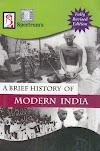Public Administration: An Introduction
"Never doubt that a small group of thoughtful, committed citizens can change the world; indeed, it is the only thing that ever has"
Public Administration - It is made up of two words - Public & Administration.
Public - Citizens 🠊 Common interest 🠊 Common demand 🠊 need a common system to fulfill it = Government 🠊 need mechanism = Administration (it is an action part of the government)
Administration - Administration is derived from a Latin word administrare which means to look after or to serve.
Thus, Administration means 'to serve' not as an owner or as a controller but as a servant (Public Servant).
Administration 🠊 to serve 🠊 People, i.e., power belongs to the people = Democracy (thus, Public Administration is viewed mostly in the context of Democracy)
Democracy - Democracy is that type of political system which allows people to exercise their powers either directly or through their representatives.
Democracy = Deimos + Cracy (which means Rule of the People)
The defining aspect of the Democracy is 'dissent not the consensus' as consensus is very much possible in communist or autocratic regime but the power/right to dissent is only available in Democracy.
Public Administration -
State 🠊 Administration 🠊 People
🠝🠝
It may be impacted by external factors like Globalisation, technology, etc
(Thus, Public Administration is an ever evolving phenomena)
State 🠊 Symbol of Power
Administration 🠊 Action part of the State
People 🠊 Public
Usually, the Administration falls under the Executive part of the government.
Executive 🠊 Action 🠊 Implementation 🠊 need a system 🠊 Administration
Organs of the government -
- Legislative
- Executive
- Judiciary
It is on the basis of separation of powers with corresponding functions.
Principle of horizontal or lateral control - All the three organs of the government are almost similar in status and none is above the other and all are mutually controlling each other.
Evolution of Public Administration
- As a discipline (Subject)
- As an activity (System)
The evolution of administration as an activity comes with the moment of evolution of human beings as a civilized society.
Human being 🠊 organised society 🠊 need of administration (as an activity)
Initially, they did not compiled it as a knowledge. Slowly and slowly, through activity, experiments and observations people learnt and tried to make it as a social science.
Europe (France, UK & Germany) 🠊 have well developed administrative system from 14th - 15th century
UK 🠊 limited monarchy & US 🠊 Constitution, formed the basis of evolution of Public Administration as a discipline.
Initially, its study was influenced by industrialisation and industrial thinkers, so they are more concerned with efficiency, i.e., Public Administration was studied and vied as an Organisation.
Later, many new dimensions of study came into picture. Such as - Public Administration as a function, behaviour, etc
Public Administration - (Science or Arts)
Science - Science is predictable and can be achieved through Practice, i.e., it involves empirical study (experiment + observation)
Science involved Facts & Proofs (Social Facts)
Arts - Specific deviation from known facts.
It mainly depends on Skills & Knowledge of the administrator.
Paper 1 - Theory & Knowledge (Universal in nature), i.e., Paper 1 of the Syllabus deals with Science aspect of Public Administration.
Paper 2 - Indian Administration (Contextual & more specific to India), i.e., Paper 2 of the Syllabus deals with the Arts part of the Public Administration.
Next Article - Scope of the of Public Administration
Notes on other subjects
Optional Notes
Note - This is my Vision IAS Notes (Vision IAS Class Notes) and Ashutosh Pandey Sir's Public Administration Class notes. I've also added some of the information on my own.
Hope! It will help you to achieve your dream of getting selected in Civil Services Examination 👍





0 Comments